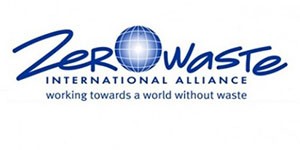A few years back, an organisation by the name of Zero Waste International Alliance was formed with the goal of drawing countries to become part of the Zero Waste initiative. At the time, and to some extent now, the zero waste program is still considered a waste management innovation of high importance. Industry specialists and environmentalists view Zero Waste as a philosophy rather than a policy or technology. As per the Zero Waste Alliance, it is an ethical and economical goal that aims to change people’s lifestyles and philosophy and make everyday living zero waste and fully renewable. Zero Waste also aims to establish and develop sustainable cycles for many aspects of everyday life. The overall aim of the initiative is to turn every bit of discarded material to new resources needed by others. This is a complex process which encompasses everything from more efficient rubbish removal practices to better recycling and reuse rates.
 Zero Waste also focuses on major changes in manufacturing and packaging of products, whatever they may be. The idea is for products and their packaging to be made of totally renewable materials which can be used entirely for the production of new resources. This also cancels out the practice of burning or burying non-usable waste which is the case most of the time now. Zero Waste aims to eliminate the discharge of waste on land, water and air and in turn make the planet a much healthier organism.
Zero Waste also focuses on major changes in manufacturing and packaging of products, whatever they may be. The idea is for products and their packaging to be made of totally renewable materials which can be used entirely for the production of new resources. This also cancels out the practice of burning or burying non-usable waste which is the case most of the time now. Zero Waste aims to eliminate the discharge of waste on land, water and air and in turn make the planet a much healthier organism.
In many respects Zero Waste seems to be an unrealistic fantasy, especially given the way waste is managed today. For Zero Waste to become more than just wishful thinking it will take collective effort and a genuine shift in paradigm, in everyone everywhere. Zero Waste can resolve all most if not all of the environmental problems faced by the world today. It won’t happen overnight but pledging commitment on a national level is a good start. Some say they just don’t know where to begin with the whole Zero Waste thing, In this case it would be good to learn from others – there are communities around the world which are setting the standard in zero waste management practices.
Scotland is one of the countries that has pledged very strong commitment toward the Zero Waste philosophy. In two thousand eight, Scotland officially accepted the Zero Waste initiative and has set out on a path to achieve its environmental goal by the year two thousand twenty five. Many large corporations have also embraced the principles of Zero Waste. In the US alone, the Zero Waste Alliance has attracted companies such as the likes of Xerox, Hewlett Packard, Fetzer Vineyards, Epson and many more to the path of no pollution. Industry specialists and watchdog organisations are reporting a genuine change of attitude on behalf of many companies. Ron Wainberg boss of Waste Management Association of Australia – one of the biggest such organisations worldwide has expressed positive views on current practices and expects even more improvement in the immediate future. Production and manufacturing cannot be stopped altogether, but dealing with leftover waste should be done in the best possible way.
